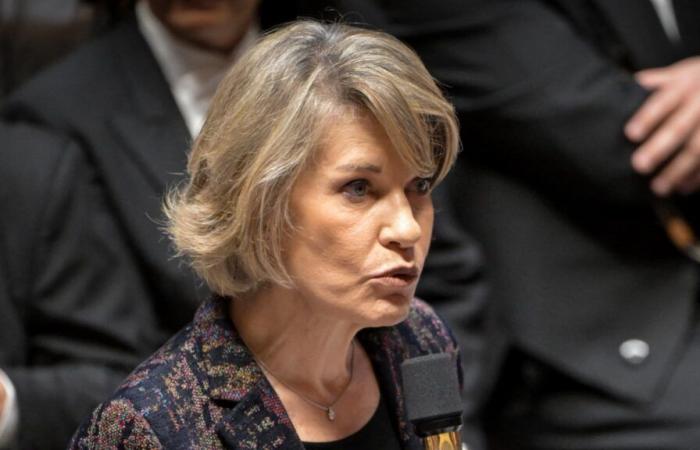The day after the trial of director Christophe Ruggia, accused of sexual assault by actress Adèle Haenel, the Minister of National Education sees this as a reason to strengthen education for emotional life in schools.
A case which provides arguments for deploying emotional education courses at school. The day after the trial of director Christophe Ruggia, accused of sexual assault on actress Adèle Haenel, and against whom the prosecutor requested five years in prison, two of which were closed, the Minister of National Education judges that sexuality education for the students could have changed the situation.
“When young Adèle was sexually assaulted, did she know how to say ‘there, no one has the right to touch me’?” asks Anne Genetet this Wednesday, December 11 on Sud radio.
“You have to learn” that “such a part of the body must not be touched, that it belongs to me,” says the tenant of rue de Grenelle.
“Sexualizing a 12-year-old child”
This trial comes five years after actress Adèle Haenel's accusations of sexual assault against Christophe Ruggia. The director had received the actress, then aged 12 to 14, at his home between 2002 and 2004 “on 120 occasions” on Saturday afternoons, according to the actress' lawyer in court.
“Hands under the t-shirt”, “under the panties”, “under the pants”, “kisses pressed on the neck”, the director who made the actress star in her first film The devilsmade “the choice to sexually assault” “a child”, judged the prosecutor in her indictment.
“And I tense up, my body tenses, I curl up in a corner of the sofa”, reported the actress for her part before the Paris court. “If he thinks I'm resisting too much, he looks at me… 'what, well what?' and he continues.”
“He kept sexualizing me, it disgusts me, as if a 12-year-old child had already had a pornographic look!”, she further explained, quoting the words of the director who spoke of his “sensuality overflowing” during filming.
“Who cared about the child?”
Five years in prison, including two years, were requested against Christophe Ruggia. The director, who pleads innocence, painfully defended himself in the face of often damning testimonies from his own loved ones.
“Everyone asks me to cry over her fate. But who cared about the child? Attacking children doesn't happen. It has consequences. No one helped this child,” he regretted again. Adèle Haenel, during the trial.
So many arguments which plead for the development of emotional, sexual and relational education in schools. Although this has already been the case on paper since 2001, less than 15% of students actually benefit from the three annual sessions planned in the programs.
The sexuality education program “not acceptable”
The Minister of National Education was due to present a new program in this area in mid-December which should facilitate its wide deployment, in the works since Pap Ndiaye's time at the ministry.
Even before the unveiling of its final version, its content aroused the revolt of conservative circles and critics within the government itself, starting with Alexandre Portier, the Minister Delegate in charge of Educational Success.
The number two of the ministry, reporting hierarchically to Anne Genetet, judged this program “as it stands, not acceptable”. Several conservative collectives including the Family Union, the new name of La Manif pour tous, denounced a “scandalous” project, “under woke influence and steeped in ideology”.
The “essential” role of school
For their part, several organizations such as Family Planning have denounced this revolt and insisted on the “essential” role of sexuality education at school in the fight against sexual violence.
160,000 children are victims of sexual assault each year according to figures from CIVISE (independent commission on incest and sexual violence against children).






